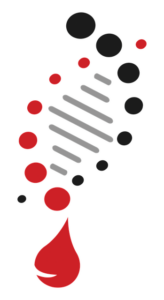Clarifying UK Tech Guidelines: Translation & Standardization Experts
Translation services for UK Technical Guidelines and Standards are essential for businesses aiming to comply with complex regulations and expand globally. These services ensure accurate, culturally relevant translations, preserving regulatory intent…….

Translation services for UK Technical Guidelines and Standards are essential for businesses aiming to comply with complex regulations and expand globally. These services ensure accurate, culturally relevant translations, preserving regulatory intent and promoting clear communication across diverse industries and languages. By avoiding misinterpretations and cultural oversights, translation experts facilitate international collaboration and access to critical technical guidance.
Are your UK technical guidelines leaving room for confusion? Navigating complex regulations is challenging, especially with global teams and diverse audiences. This article explores the importance of clear, concise, and accessible UK technical guidelines, delving into potential pitfalls like ambiguity and translation barriers. We uncover strategies to enhance communication, including leveraging professional services, language expertise, and best practices for future-proofing your documents. Discover how effective guidance impacts success in today’s global market through optimal translation services for UK Technical Guidelines and Standards.
- Understanding UK Technical Guidelines Complexity
- Clarity and Conciseness: A Must-Have
- Translation Challenges in Technical Documentation
- Ensuring Accuracy Through Professional Services
- The Role of Language Experts in Standardization
- Improving Communication with Clear Guidance
- Case Studies: Successful UK Guideline Translations
- Common Mistakes to Avoid During Translation
- Future-Proofing Your Technical Documents
- Accessing Top-Tier Translation Resources
Understanding UK Technical Guidelines Complexity

The UK’s technical guidelines and standards can be intricate, spanning various sectors and industries with specific requirements. These guidelines are designed to ensure product safety, quality, and compliance, but their complexity can pose challenges for businesses, especially those operating across multiple sectors or looking to expand internationally.
Translation services play a vital role in navigating this complexity by providing accurate and culturally adapted translations of UK technical guidelines. They help companies understand and adhere to local regulations, ensuring that products and services meet the required standards when entering the UK market. Effective translation ensures that technical information is not only conveyed precisely but also accessible to a global audience, fostering a more inclusive and efficient business environment.
Clarity and Conciseness: A Must-Have

In today’s digital age, ensuring that technical guidelines are clear and concise is paramount. For documents related to the UK, such as technical standards and regulations, this translates into a need for seamless comprehension. The purpose of these guidelines is twofold: to facilitate easy understanding for all stakeholders and to streamline processes through consistent communication. Ambiguity can lead to missteps, delays, and increased costs, especially in complex industries relying on precise technical directions.
Thus, when it comes to UK technical guidelines, the role of translation services cannot be overstated. Professional translators who specialize in this domain can adapt the content to maintain its integrity while making it accessible across diverse language barriers. Conciseness in particular is key; well-translated guidelines ensure that essential information is conveyed effectively, enabling faster adoption and adherence across industries and borders.
Translation Challenges in Technical Documentation

Ensuring Accuracy Through Professional Services

To ensure the accuracy and clarity of UK technical guidelines, it’s essential to leverage professional translation services. These services play a pivotal role in bridging the gap between complex technical jargon and everyday understanding, especially when guidelines are intended for a diverse audience. Professional translators not only possess expertise in various technical fields but also adhere strictly to quality assurance processes, ensuring that translated documents maintain their original intent and precision.
Translation services for UK Technical Guidelines and Standards should ideally involve native speakers with deep knowledge of both the source and target languages. This ensures that terms are not just translated but also culturally adapted, promoting better comprehension among users from different linguistic backgrounds. Regular reviews and revisions further enhance accuracy, making these guidelines reliable resources for industry professionals.
The Role of Language Experts in Standardization

The role of language experts is pivotal in ensuring that UK technical guidelines are clear and concise, especially when aiming to standardize communication across various industries. These experts bring a nuanced understanding of both technical terminology and linguistic precision, which are essential for creating accessible and universally comprehensible documentation. They play a critical role in translating complex ideas into simple, structured language, facilitating effective knowledge sharing and adherence to standards.
Language professionals equipped with specialized translation services for UK Technical Guidelines and Standards can help bridge the gap between technical writers, industry experts, and end-users. By localizing content for different languages, they enable global accessibility and foster a more inclusive environment, where technical information is no longer limited to English speakers. This standardization ensures that guidelines are consistently interpreted and applied across borders, promoting safety, quality, and efficiency in diverse markets.
Improving Communication with Clear Guidance

The clarity of technical guidelines is paramount in ensuring effective communication, especially within complex industries like engineering or healthcare. In the UK, where a multitude of standards and regulations apply, having concise and unambiguous guidance can streamline processes and enhance safety. However, as these guidelines often deal with intricate matters, their translation into accessible language is crucial for all stakeholders, including those who may not be native English speakers. This is where professional translation services play a vital role in interpreting UK technical guidelines and standards, ensuring they are not only understood but also comply with the source material’s intent.
By leveraging translation experts, these guidelines can be adapted for diverse audiences while preserving their integrity. This process involves not just word-for-word translation but also cultural adaptation and terminology consistency to create a comprehensive, user-friendly document. Such an approach fosters better comprehension, reduces misinterpretations, and ultimately improves compliance, making the UK’s technical guidelines more accessible and effective across the board.
Case Studies: Successful UK Guideline Translations

In the realm of technical communication, clarity is key – especially when it comes to guidelines and standards that underpin industries across the UK. Case studies of successful translations highlight the importance of professional services in ensuring these documents are not only accurately conveyed but also retain their critical concise nature. By leveraging translation services for UK Technical Guidelines and Standards, organizations can bypass potential pitfalls and ensure compliance across diverse linguistic landscapes.
These case studies reveal that skilled translators grasp technical jargon, regulatory nuances, and industry-specific terminology, translating them into equivalent terms in target languages while preserving the original intent. This meticulous process involves more than word-for-word substitutions; it requires an understanding of cultural and regulatory contexts to create guidelines that are both usable and legally sound in their new form.
Common Mistakes to Avoid During Translation

When translating UK technical guidelines, one must be vigilant to avoid several common pitfalls that can lead to misinterpretations and misunderstandings. A frequent mistake is assuming that all terms have direct equivalents across languages, ignoring cultural nuances and specialized terminology unique to the sector. This often results in inaccurate or confusing content for the target audience. For instance, technical jargon used in British English might not translate well into other languages, requiring professional translators who understand both the language and the industry.
Another error is neglecting the importance of formatting and layout. Technical documents often contain complex tables, diagrams, and structural elements that must be preserved during translation to ensure clarity and consistency. Inaccurate or inconsistent translation of these elements can lead to confusion, affecting the overall quality of the final document. Therefore, employing translation services with expertise in UK technical guidelines and standards is essential to avoid such mistakes, ensuring accurate and clear communication across languages.
Future-Proofing Your Technical Documents

In today’s fast-paced technological landscape, future-proofing your technical documents is essential. As industries evolve and new standards emerge, ensuring your UK technical guidelines remain relevant and up-to-date is crucial. One effective strategy involves incorporating clear, concise language that accurately reflects the latest advancements while maintaining readability. Translation services for UK Technical Guidelines and Standards play a vital role in this process.
By leveraging professional translation services, you can guarantee that your documentation remains accessible to a global audience. These services not only translate content into various languages but also adapt it to local cultural nuances, ensuring compliance with international standards. Regular updates and revisions, aided by translation experts, safeguard the integrity of your technical guidelines, making them indispensable resources for years to come.
Accessing Top-Tier Translation Resources

Accessing top-tier translation resources is essential when it comes to ensuring clarity and precision in translating UK technical guidelines. With the ever-growing importance of global communication, businesses and organizations must strive for excellence in their documentation. One key aspect is leveraging advanced tools and platforms that offer a wide range of language services, including machine translation, post-editing, and linguistic expertise. These resources can significantly speed up the process while maintaining or even enhancing the quality of translations.
For UK technical guidelines and standards, specialized translation services are invaluable. They provide access to native language experts who understand not just the words but also the nuanced requirements of technical documentation. By utilizing these services, you can guarantee that your guidelines are accurately translated, covering all necessary aspects for a global audience. This approach ensures consistency, clarity, and compliance with international standards, ultimately facilitating effective communication across borders.
In ensuring effective communication, clear and concise UK technical guidelines are indispensable. This article has explored various aspects of this topic, from understanding complexity to leveraging professional translation services and language expertise. By adopting best practices and avoiding common mistakes, organizations can future-proof their technical documents. Utilizing top-tier translation resources specifically tailored for UK technical guidelines and standards is crucial for maintaining accuracy and enhancing global comprehension. Through these strategies, organizations can streamline communication, foster collaboration, and achieve their goals with precision and clarity.







